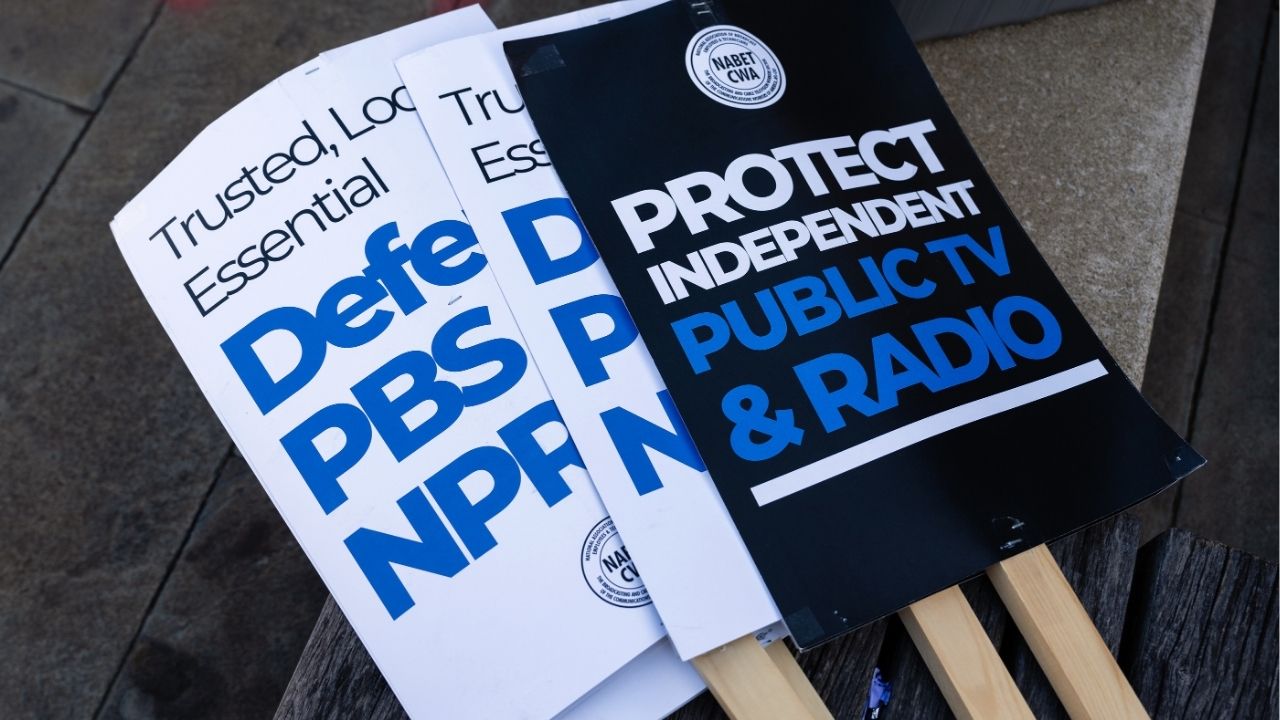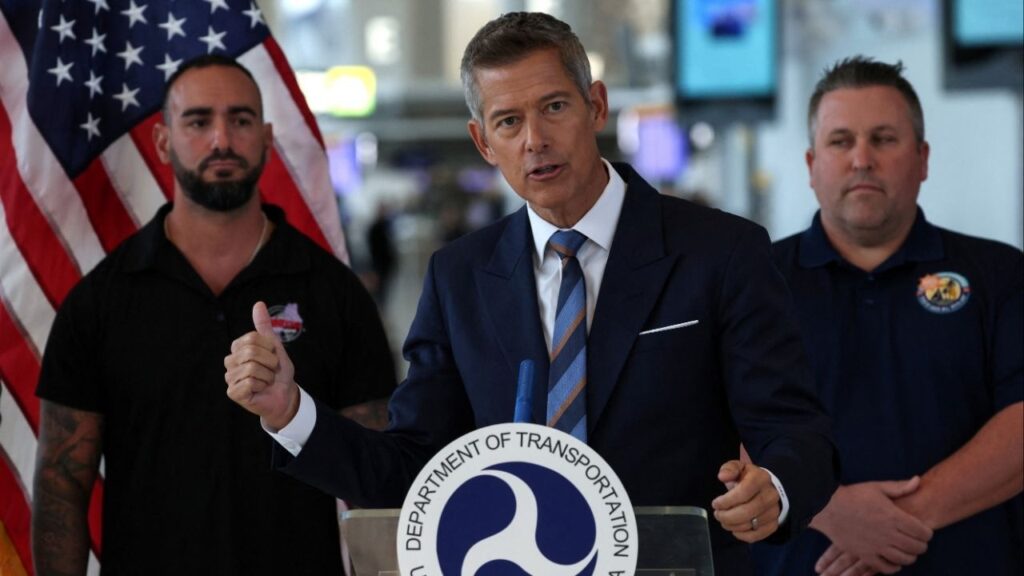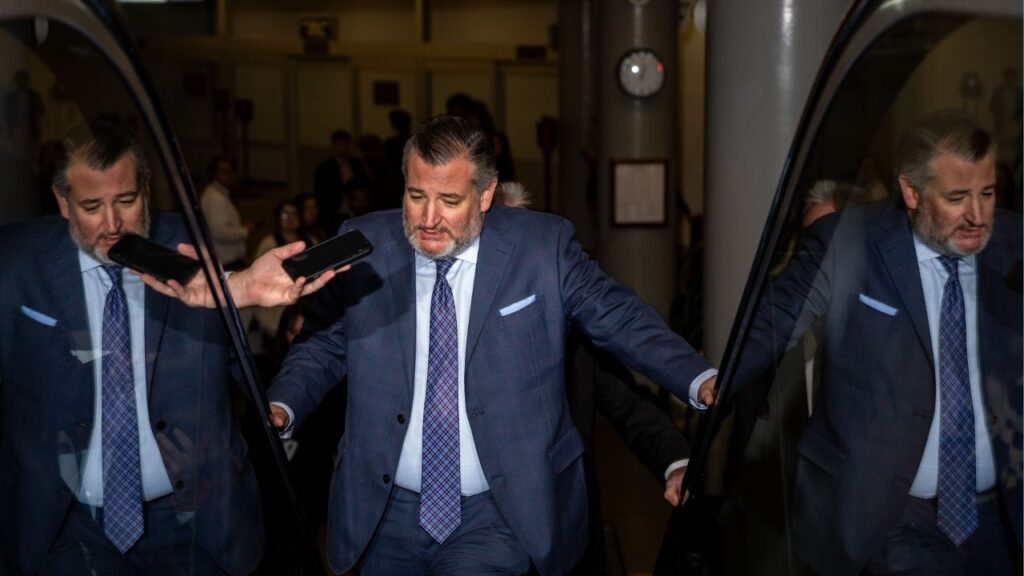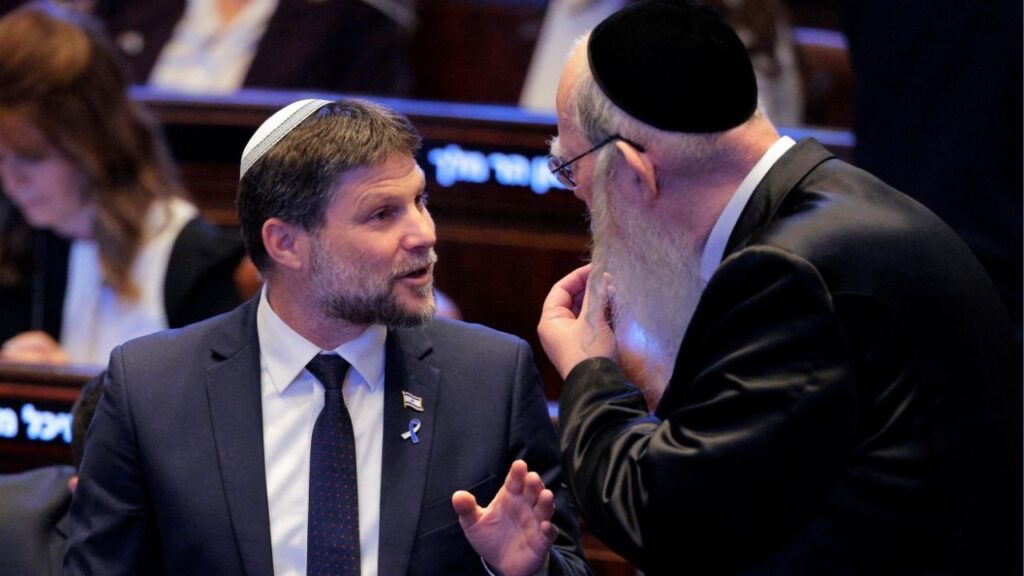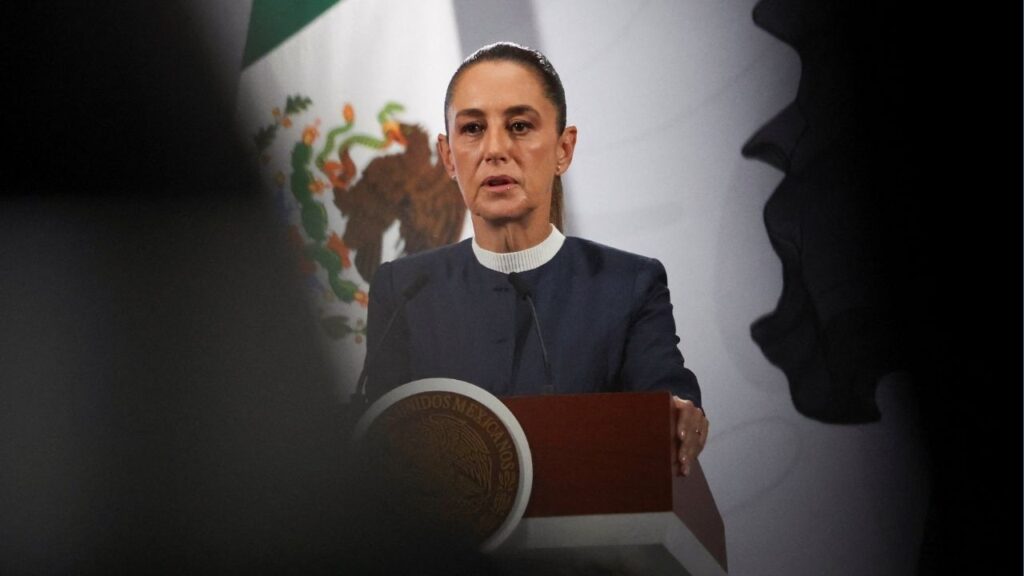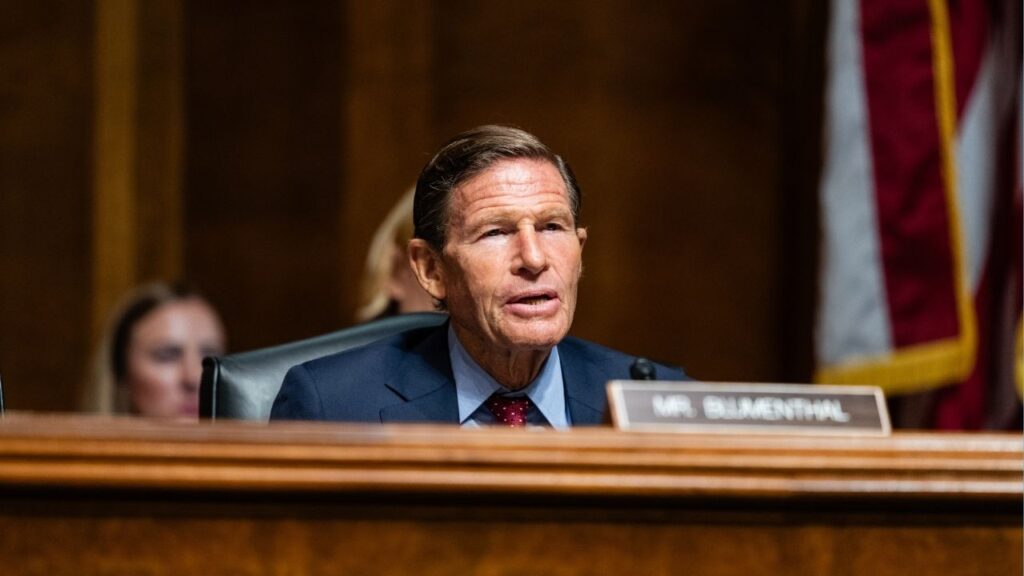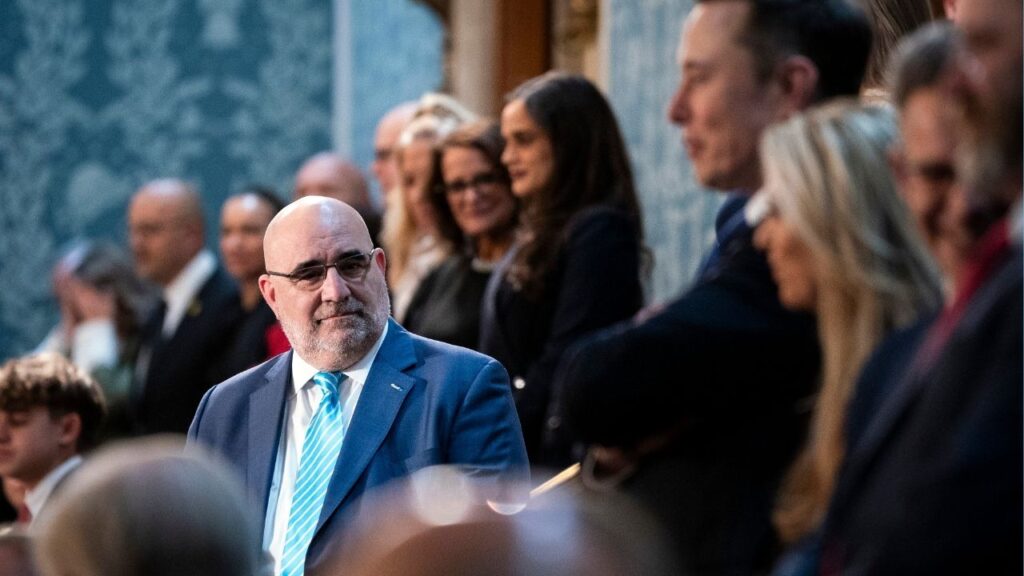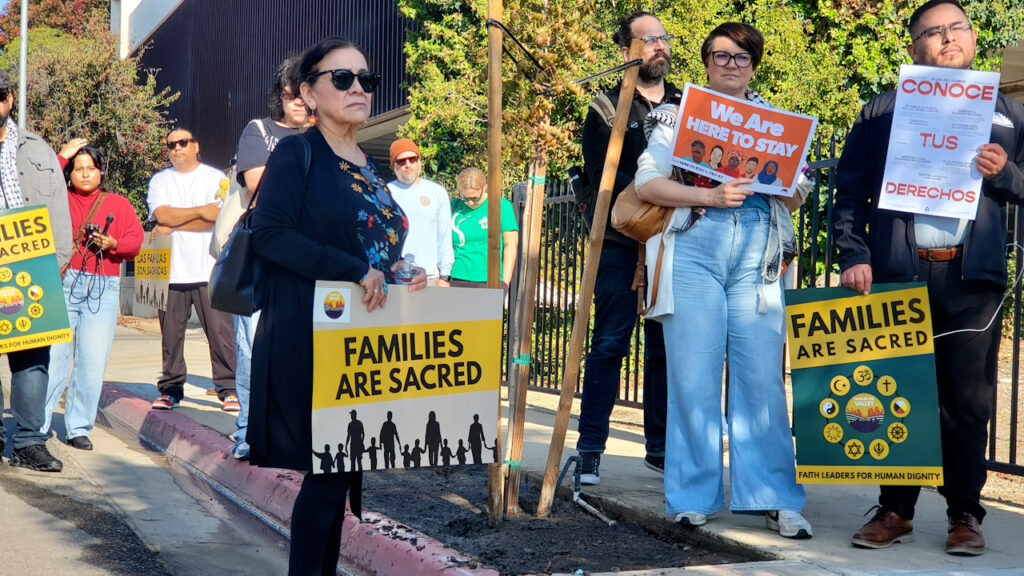Signs supporting NPR outside its headquarters in Washington on March 26, 2025. The Trump administration has accused NPR and PBS of using public funds to produce biased coverage and “left-wing propaganda.” (Eric Lee/The New York Times)

- Trump signs order to cut NPR, PBS funding, calling coverage biased; CPB, PBS leaders push back, calling move unlawful.
- Executive order targets NPR, PBS funding; CPB, broadcasters warn cuts would harm public media, vow to explore legal options.
- Trump blasts NPR, PBS as biased; public media leaders warn cuts threaten local news, emergency alerts, cultural programming.
Share
|
Getting your Trinity Audio player ready...
|
President Donald Trump on Thursday signed an executive order aiming to cut federal funding for NPR and PBS, accusing the news outlets of producing biased coverage and “left-wing propaganda.”
Trump instructed the Corporation for Public Broadcasting, which funds public broadcasters in the United States, to end federal funding for NPR and PBS, to the extent allowed by law. The outlets receive only a small portion of their funding from Congress, with the rest coming from donors and sponsors.
The immediate impact of the order was unclear. The Corporation for Public Broadcasting, a taxpayer-backed, private entity created by an act of Congress, is funded two years in advance to protect it from political maneuvering.
“CPB is not a federal executive agency subject to the president’s authority,” Patricia Harrison, the president and CEO of the Corporation for Public Broadcasting, said in a statement Friday. “Congress directly authorized and funded CPB to be a private nonprofit corporation wholly independent of the federal government.”
White House Document Criticizes Coverage of COVID-19, Hunter Biden
The executive order was the latest move by the Trump administration against what it described as biased public media. The White House released a document accompanying the order on its website, criticizing the two broadcasters’ coverage of, among other topics, the COVID-19 pandemic and Hunter Biden, the son of former President Joe Biden.
Trump ordered the Corporation for Public Broadcasting and all federal agencies to also cut indirect funding by forbidding public radio and television broadcasters that receive federal funds from using that money for PBS or NPR programs.
The chief executives of NPR and PBS testified before Congress in March, a heated hearing in which Republicans assailed them for what they described as liberal bias.
The White House wants Congress to take back more than $1 billion for two years that has been allocated for the Corporation of Public Broadcasting. Trump’s order Thursday instructed the board of the corporation to “cancel existing direct funding to the maximum extent allowed by law” and “decline to provide future funding.”
Trump’s executive order is “blatantly unlawful,” Paula Kerger, the president and chief executive of PBS, said in a statement Friday. “We are currently exploring all options to allow PBS to continue to serve our member stations and all Americans,” she added.
NPR Says Editorial Practices, Decisions are Independent from Outside Influences
NPR said in a statement earlier Friday that its editorial practices and decisions are independent and free from outside influences, including political parties.
“Eliminating funding for the Corporation for Public Broadcasting would have a devastating impact on American communities across the nation that rely on public radio for trusted local and national news, culture, lifesaving emergency alerts and public safety information,” the statement said.
Kerger said in an interview that aired this week that about 15% of the overall budget for public broadcasters comes from the federal government.
“This is different than many other public broadcasters around the world, which are largely state-supported,” she said on “PBS NewsHour.” “We are not.”
Nevertheless, in 2011 NPR assembled a 36-page document that detailed what would happen if the Treasury stopped cutting checks to the Corporation for Public Broadcasting. The document describes a precarious radio system that would bear the blow poorly, with consequences for listeners across the United States.
Independent member stations get most of the money dedicated to public radio. That makes them more vulnerable than NPR, which says it gets only 1% of its budget from Congress.
Public television in the United States would likely be in worse shape because PBS receives much more of its budget — about 15% of $373 million — from the federal government.
The Corporation for Public Broadcasting sued the Trump administration this week, accusing it of illegally trying to fire three members of its board. The administration had not offered any justification for the dismissals.
—
This article originally appeared in The New York Times.
By Qasim Nauman/Eric Lee
c. 2025 The New York Times Company



